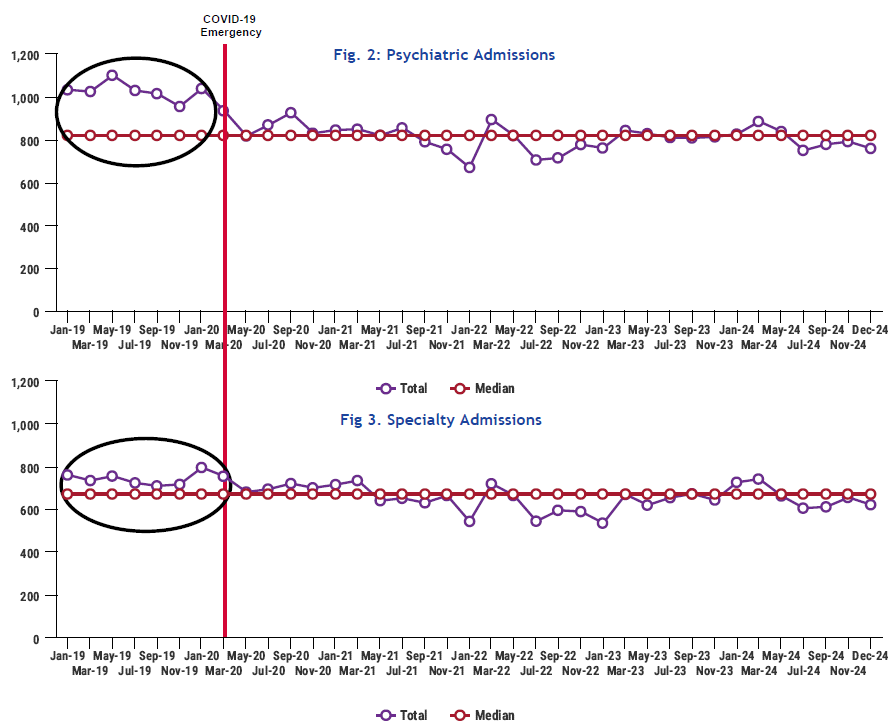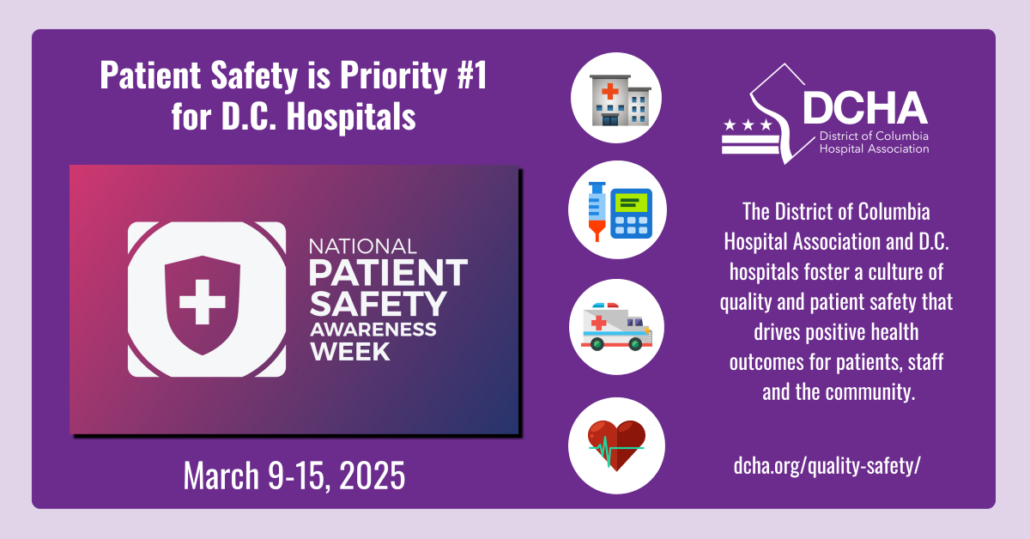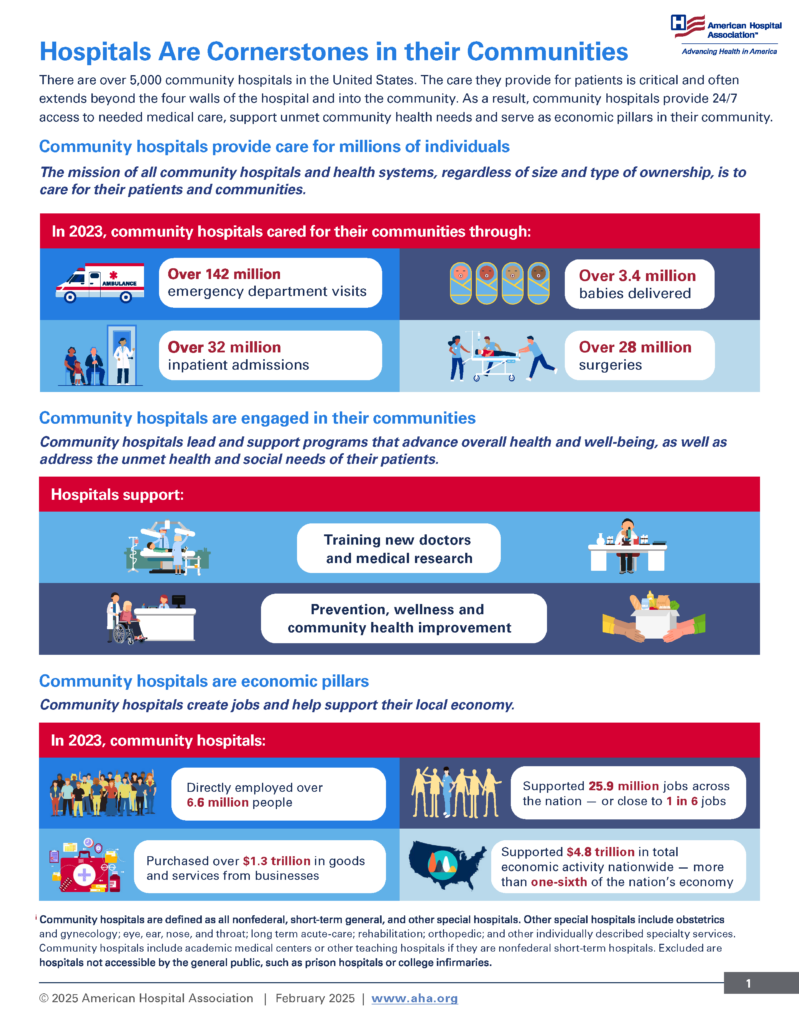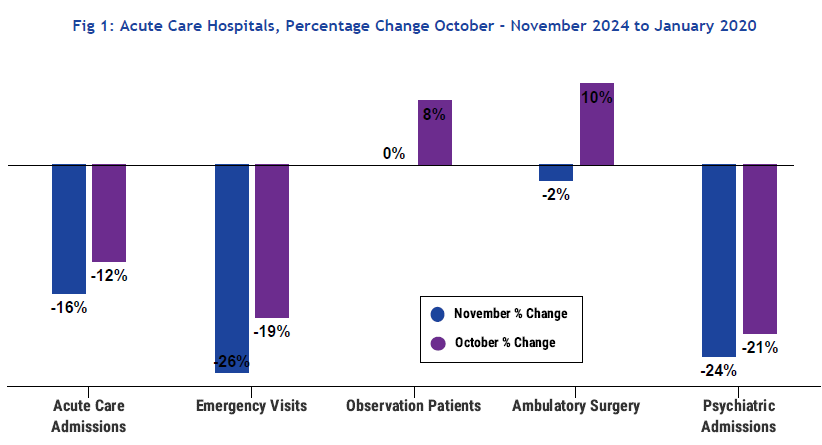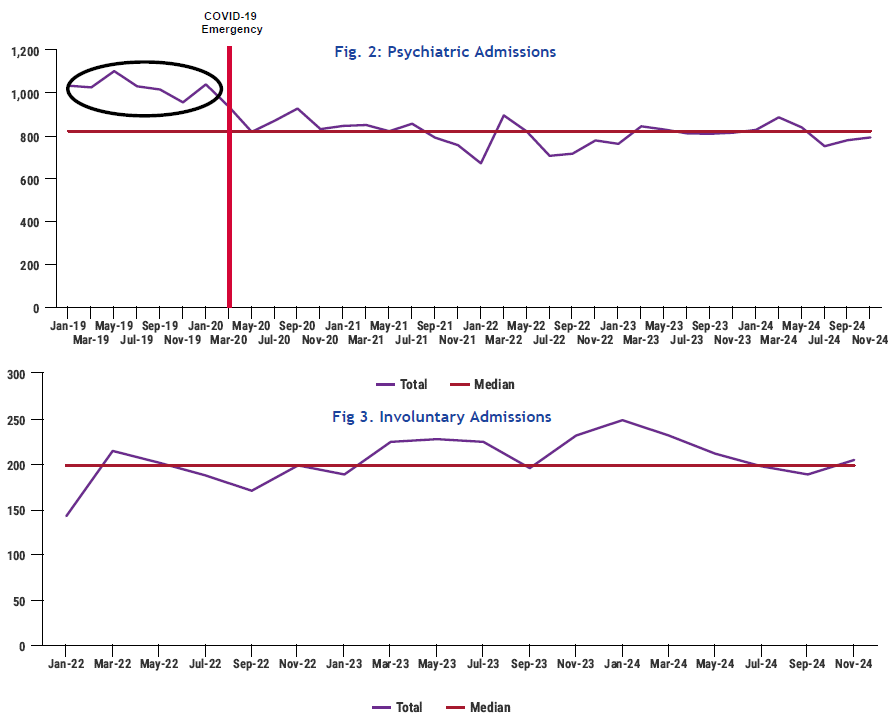December 2024 Utilization Report
Points forts
Three out of five of the focus utilization metrics saw a decrease in volume from November to December 2024. Observation admissions showed only a small decline compared to January 2020 baseline going from 0% in November to -1% below baseline in December. Ambulatory surgeries and psychiatric admissions also showed a relatively small decline compared to baseline going from -2% to -5% and -24% to -27% respectively. Emergency department visits and acute care admissions present a slight uptick in volumes respectively going from -26% to -20%, and -16% to -13% below baseline as shown in Fig. 1 below.
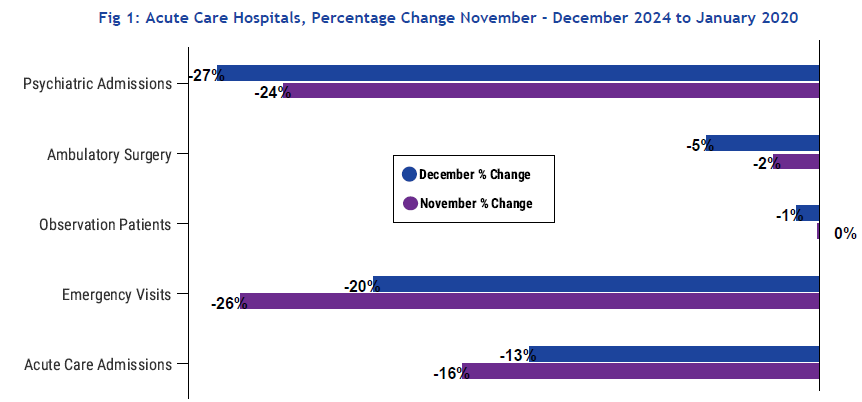
The shift in psychiatric admissions remains this month as volume continue to remain below the median for the reported period as shown in Fig. 2 below. Although not a statistical shift, specialty admissions show a similar pattern in recent months as shown in Fig. 3 below.
